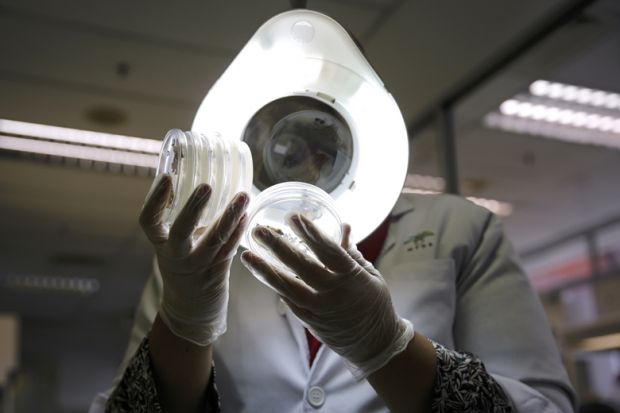A new journal is breaking with tradition by publishing stand-alone results viewed as inconclusive or negative, along with papers that challenge previous research findings.
Experimental Results, which has been launched by Cambridge University Press, will also publish the outcomes of attempts to reproduce previously published experiments, including those that dispute past findings, amid concerns that many studies that cannot be replicated go unchallenged.
The new title will be overseen by former cancer scientist Fiona Hutton, CUP’s head of science, technology and medicine (STM) open access publishing, and addresses concerns that she has had since her days in the laboratory.
“There are so many times in a lab when an important paper is published in a high-impact journal and people will say, ‘We tried something very like that but didn’t get the same outcome,’ ” Dr Hutton told Times Higher Education.
“This journal will allow people to put forward this work as an alternative version and dispute a particular finding, rather than waiting for a couple of years to get a correction or retraction,” she added.
Having openly available raw results for these experiments meant that other scientists could use and interrogate them in different ways that the original researcher did not envisage, Dr Hutton said.
Offering scientists the chance to publish inconclusive or negative results would also be “really important for the scientific record” because such results often go unpublished, potentially leading to a duplication of near-identical studies in future, she added.
Dr Hutton acknowledged that the new journal was “not following the traditional model of publishing”, which favoured eye-catching positive results or novel experiments over inconclusive results, but argued that its inclusion of such results was closer to the reality of scientific research.
“A lot of publishing is about creating a story – we are just trying to tell the truth rather than publish something that catches the imagination,” said Dr Hutton.
“The reality is that research results are often confusing, inconclusive or don’t fit a narrative,” she added, concluding that “discovery is damaged when the focus becomes the research paper rather than the research output itself”.
In addition, Experimental Results, which is now open for submissions, will use a new system of peer review, with each reviewer identified by name and each review published alongside the article in question with its own identifying code, which will allow the journal’s reviewers to have their work recognised.
They will also be given discounts on the cost of publishing their own articles in Experimental Results.
“Our goal is to be progressive and ensure research outputs are correctly reviewed, and to ensure the reviewers we rely on so heavily are rewarded,” said Dr Hutton.
Caroline Black, CUP’s STM publishing director, said the journal reflected that “all research outputs – not just the positive, exciting results – should be part of the published record for the advancement of knowledge and the reduction of wasted time on redoing work unnecessarily”.
“In the past, it would have been difficult to publish negative, confirmatory or inconclusive results, as journal editors made decisions on the basis of innovation, interest level and potential for citations,” she said, adding that “people are looking for alternative types of publication”.
Register to continue
Why register?
- Registration is free and only takes a moment
- Once registered, you can read 3 articles a month
- Sign up for our newsletter
Subscribe
Or subscribe for unlimited access to:
- Unlimited access to news, views, insights & reviews
- Digital editions
- Digital access to THE’s university and college rankings analysis
Already registered or a current subscriber? Login








